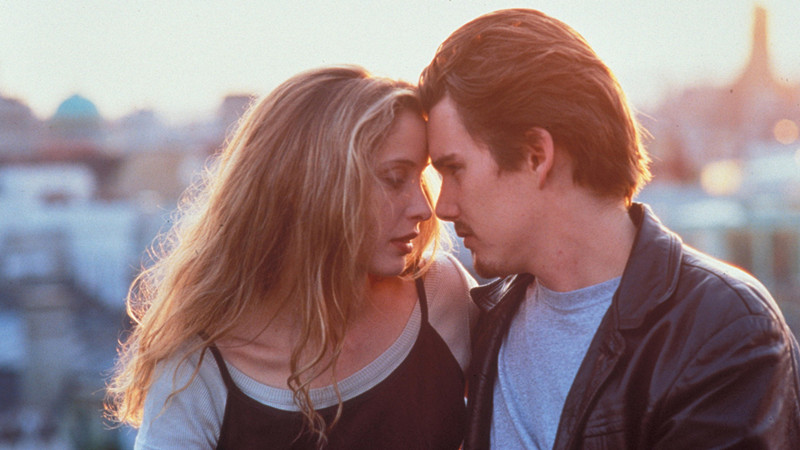
There are many contenders for the greatest trilogy of all time, from The Lord Of The Rings to Kieslowki’s Three Colours to The Godfather to the Dollars Trilogy. Most are vast tales, with large ensembles, usually spanning a huge amount of time. Yet, in any discussion of what constitutes the best, The Before Trilogy surely ranks as one of the prime contenders.
Technically, there may be more installments to come (the next would arrive in 2022) depending on the gameness of the actors and the director. Nonetheless, as it stands it is a trilogy and can be ranked as such. This piece will evaluate ten reasons as to why it is not only a contender, but in fact should be seen as the finest of all trilogies.
Telling the romantic relationship between Jesse (Ethan Hawke) and Cèline (Julie Delpy) as they first meet in Vienna, find each other again in Paris, and then are seen arguing in an idyllic beachside Greece, the films are essentially three day-long tales that gather their depth through the intense precariousness of each situation and the sharpness of the dialogue. It is three portraits of love throughout the ages that, stands up as the greatest trilogy of all time. Let’s table up the reasons why.
Spoilers for all three films abound.
1. The Immense Scope
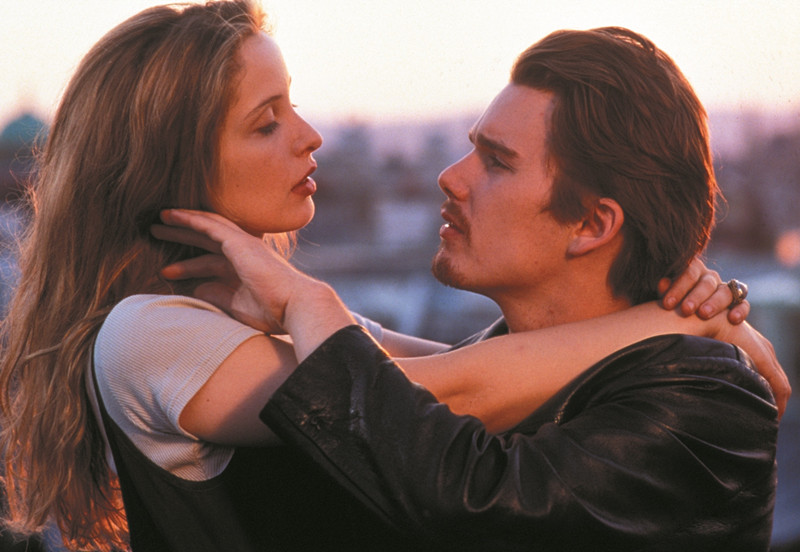
It starts from a bold gesture on a train heading towards Vienna, and ends with a reconciliation on a beach-front bar in Greece, taking place over the course of 18 years. Not only do the characters grow, but the actors playing them also age, thus bringing their own experience of getting older to their portrayals.
Admittedly, similar tricks could be achieved through the use of make-up and CGI, yet this would forego the verisimilitude of having three films over three different decades. Linklater is one of the most patient filmmakers, knowing that, like a fine wine, a concept can only get better if time is allowed to age it.
Thus we see Céline and Jesse through the stages of youthful optimism (Before Sunrise), early-thirties frustration (Before Sunset) and middle-aged reevaluation (Before Midnight); made all the more enjoyable as one can see the actors physically age.
Additionally, what makes the trilogy so charming is that, like Truffaut’s Antoine Doinel series, there was no intention from the beginning to have these characters reappear. Instead, he merely focused on telling one charming story before afterwards deciding upon a sequel.
Without having a specific aim for how Before Midnight would end as Before Sunrise would start, he instead, in collaboration with his two actors, could have ample time to think about where to situate the characters over the space of 8 or so years. Yet although its scope is immense, the focus is primarily on two small characters; making it as deeply human as it is excellently told. For that reason, it knocks any other trilogy out of the park.
2. The Realistic Dialogue
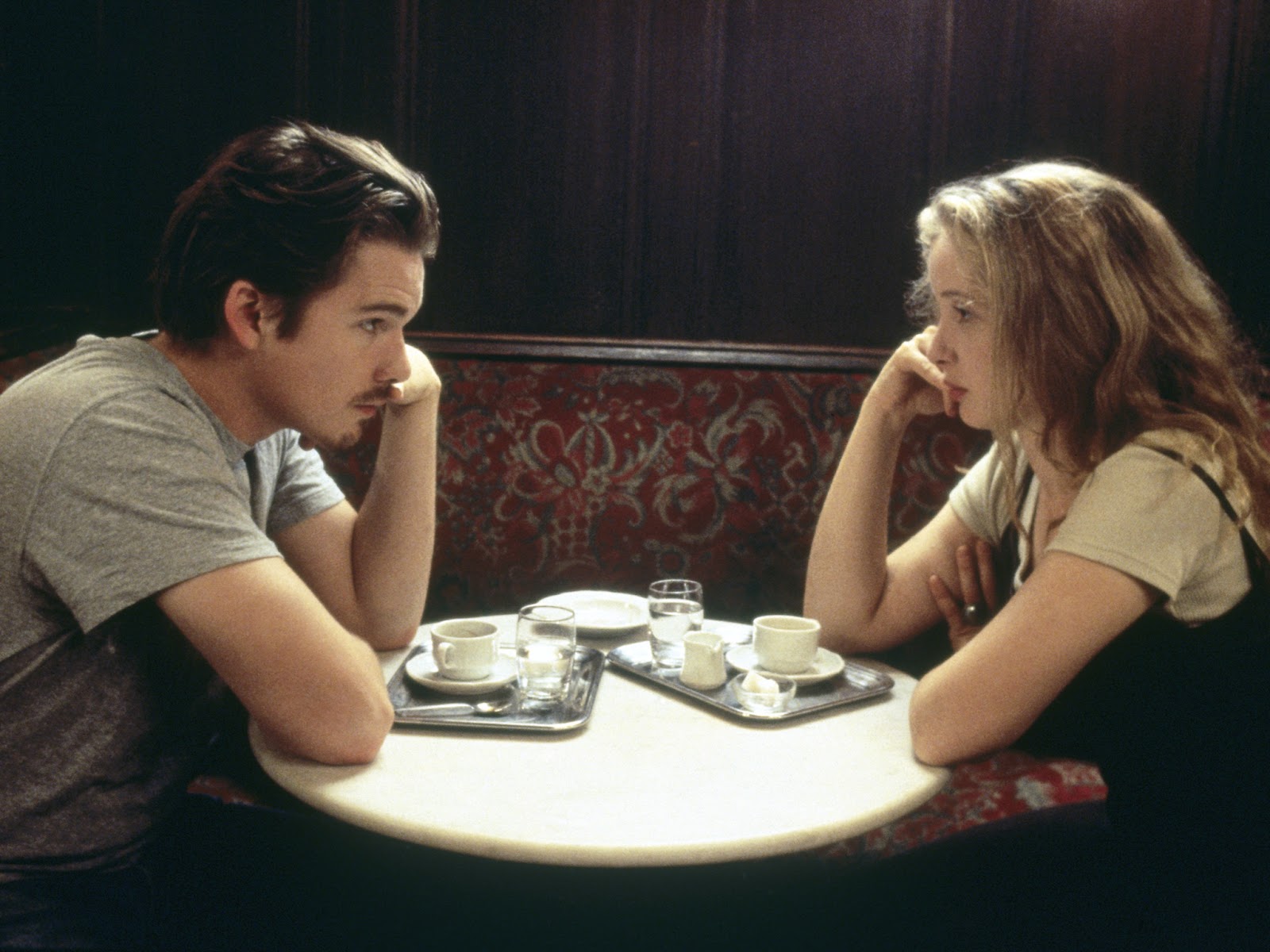
The first film in the trilogy has its cringe-worthy moments. From “media is the new form of fascism” to talking about reincarnation and the splitting of souls, some of the dialogue can be just a tad pretentious. Yet these are young, earnest twenty-somethings, jaunting around Europe, so this is exactly how they would speak, especially considering that they are flirting with one another.
For a certain generation of privileged, young person, whose only aim so far is to go to new places and to see new things, the dialogue rings especially true. This only deepens in the sequel, Before Sunset, where the very long walk and talk reveals a growing frustration with the way that life has turned out.Once Before Midnight rolls around, and the two start outright shouting at each other in a bedroom scene that ranks along with Le Mepris as one of the finest arguments in film, the Before Sunrise conversations seem nostalgic in retrospect.
Richard Linklater is also a great collaborator, and one of his finest moves in writing the trilogy was inviting Kim Krizan to balance out the male voice in film’s one and two. Therefore they totally avails itself to both sides of the gender spectrum.
This is expanded even further by giving Ethan Hawke and Julie Delpy space to develop their characters, making it not only a director’s movie, but a truly actor’s movie as well. Thus the dialogue is not only true to people as they grow up and change, it also feels genderless, making it a truly universal trilogy.
3. The Relatable Situations
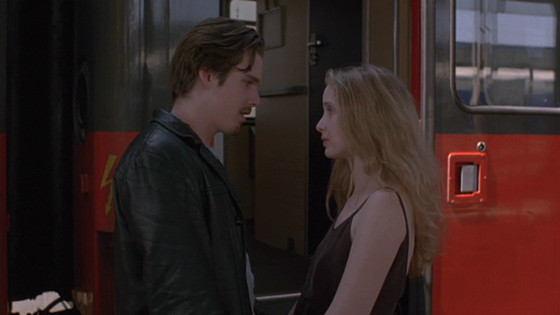
In addition to the realistic dialogue, the situations that both characters find themselves in feel relatable — something that couldn’t be said for The Lord Of The Rings or The Godfather. Perhaps most men don’t have the chutzpah of Ethan Hawke when he asks Julie Delpy out on a train, or perhaps most men don’t write books about women on the off-chance that they walk into the Shakespeare & Sons the book is being sold in.
Nevertheless, the way Before Sunrise handles the initial awkwardness of two people having just met transition to a period of utter fascination with the other has a certain grace to it rarely equalled in American cinema. The previous sequels, although great, never reach this height again, yet people can easily find themselves with these characters, and depending on their age, can change their favorite film on whether it relates more to them in their present moment.
There may be lots of silly conversations, but there are no grand gestures, no car chases, no sudden deaths, and no double-timing or secret intrigue. Instead, the trilogy is a portrait of lives as they are lived in the moment.
We can all relate, depending on our own lives, to the feeling of meeting someone for the first time, or seeing them again after many years and feel the pain of nostalgia creep back up, or be married to that person for several years and feel like life didn’t quite square up to your expectations. Not all cinema has to be relatable on a practical level — although an emotional level helps — but to watch something that so constantly is makes the Before Trilogy a joy to watch.
4. The Perfect Settings
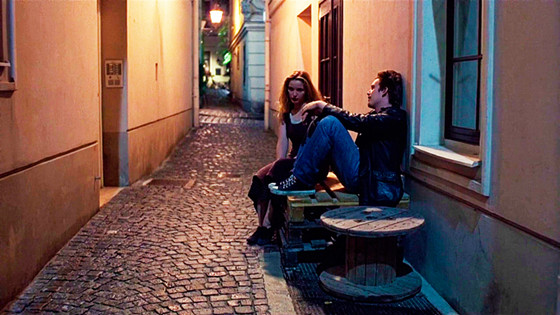
Aside from The Third Man — which Before Sunrise homages by its kiss in the Reisenrad — has any film ever captured the essence of Vienna better than The Before Trilogy’s first installment? The city in the ‘90s, with its homely cafés, punk bars, large opera houses, cobbled streets, and assortment of strange people they meet on every step, truly comes to life as they walk around and take in the surroundings.
Likewise, the sequel, filmed almost in real-time, uses the romanticism of its Paris location, and its cinematic history as the birthplace of the French New Wave, which the trilogy seems to be a continuous reference of, to force the couple to come back to one another. Before Midnight then uses the idyllic holiday location of Greece, with its ruins recalling Journey To Italy, which Céline references at one point, in order to force the couple to focus on their marital woes.
Each setting is perfectly suited to their respective journey, using Europe as a conduit to focus on themselves and their emotions. It is inadvertently an advert for the freedom of movement that can be enjoyed across all EU member states, and the idea of the continent as a unique place of shared ideals.
The first film, set in 1995, shows the continent as it was opening up, and destinations such as Budapest, which Jesse is traveling to, as truly exotic locations; the second, set in 2004, when the EU was constantly expanding and many countries now shared a fixed currency; and 2013, set in a Greece about to plunge into turmoil, thus laying the groundwork for the broken Europe that is reevaluating its shared values today.
Thus the settings are no mere romantic locations for which to observe our couple, but also a snapshot in time of how the continent is getting on, making the trilogy as pertinent as it is picturesque.
5. The Use Of Time
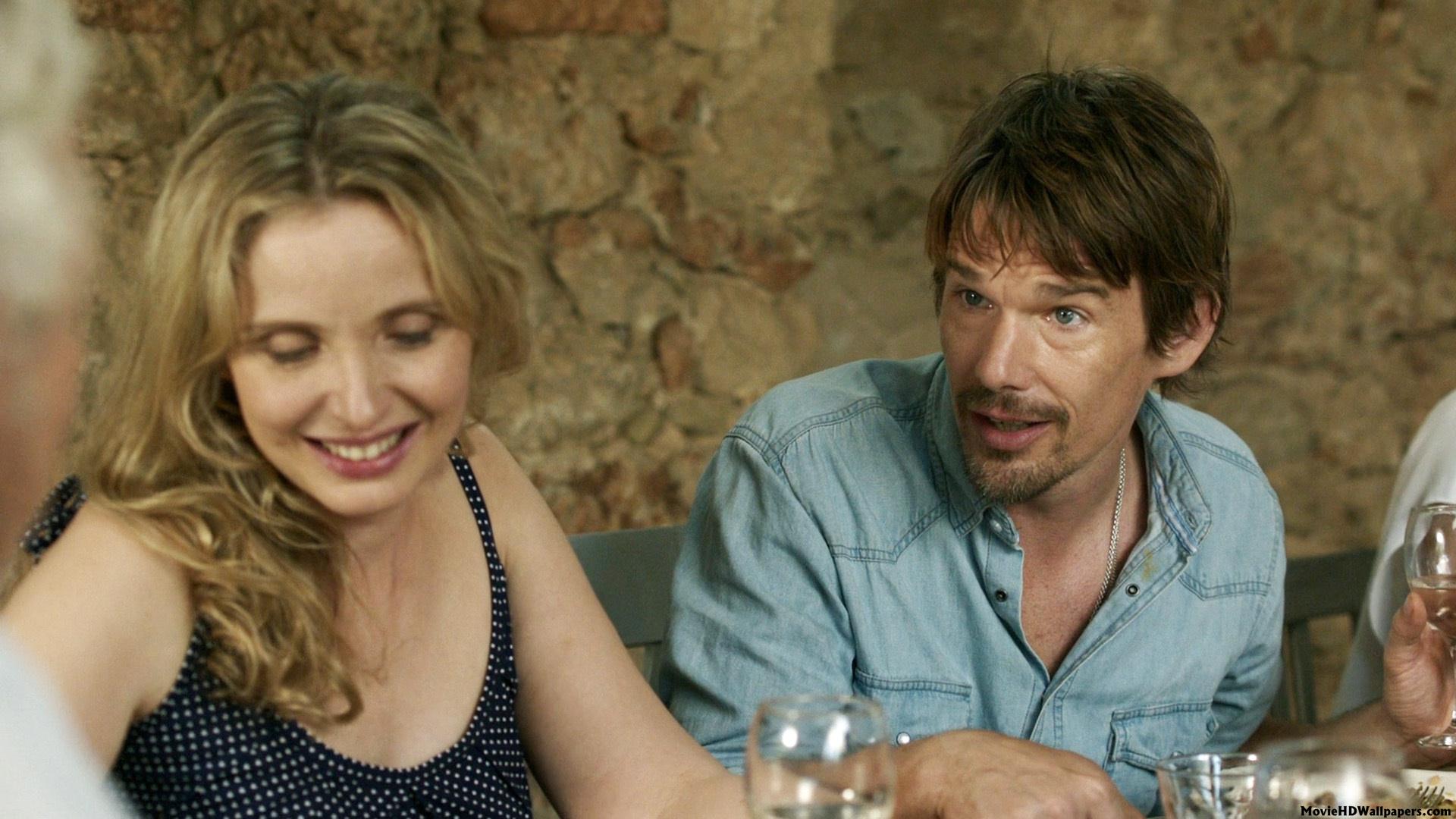
Richard Linklater has always had a fascination with time. From the real-time experimentation of Slacker, to the fourteen-year odyssey of Boyhood, he has always sought to innovate with the use of time in his filmmaking.
Yet, perhaps no film does it as eloquently as Before Sunrise, which in its brief interruption upon prosaic reality, and the joint day they share together as they move out of “real time” and into a present where only the other person’s existence matters, creates a temporary space where love, romance and endlessly philosophical conversations can happen.
The shock is made more pertinent in the sequel, where coming across one another once again, their journey from Shakespeare & Sons to Céline’s apartment is filmed in almost real-time, creating a movie that feels closer to an eye-on-the-wall documentary than a true fictional film.
Whilst the first film gathers its interest by how the night between them will end — basically, will they make love or not, will they agree to share contact information and meet each other again — the second is even more thrilling as Jesse has to get his plane, leading to the best ending of all three films, the immortal line: “Baby, you’re going to miss that plane.”
The trilogy capper, Before Midnight, feels like a combination of the two, in that there are moments of walk-and-talks that in their ramblings feel like the original, and there are sustained periods of heightened emotion that recall Before Sunrise. This creates a richness of depth that can only potentially be deepened by the time we (hopefully) get to film four in the series.